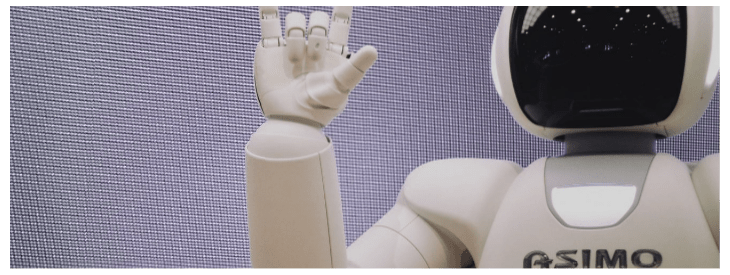Acronyms and abbreviations abound in the tech word, and while they’re great shortening difficult ideas, often they obscure matters. Everyone develops an interpretation – sometimes far removed from the original meaning. Moreover, hype surrounding any term is a danger sign, a point at which to re-examine an innovation’s promise rather than sharing everyone else’s optimism. Where bubbles emerge, from the South Sea Company to Dutch tulips and, more recently, housing, it’s crippling when they burst. So, is AI’s popularity justified and what will the impact on our sector, ecommerce, be?
What is AI?
Intelligence is hard to grasp. Broadly defined, it relates to an agent’s awareness of its environment and ability to meet its goals. An agent more ‘intelligent’ than another will accomplish more of the same objectives in a given time. Think of a translation service that scores greater accuracy than another faster thanks to connection to a larger language database. We say intelligence is artificial if that which shows it isn’t natural.
How AI has already transformed our world
AI’s contribution reaches back further than you may think. While researchers like Alan Turing, of The Imitation Game fame, were already beginning to explore what it meant for machines to think in the early 1950s, the term AI came into being at the 1956 Dartmouth Conference. Following simple chess and checkers programs, ‘expert systems’, drawing on large specialist knowledge databases, began landing real success with medical diagnosis by 1965. Since then, AI has undergone several ‘springs’ and ‘winters’ – peaks and troughs of optimism. In 1970, legendary AI researcher Marvin Minsky thought machines with human-level intelligence would arrive by 1978. When these gains failed to materialise, funding for AI research dried up. Interest returned in the 1980s, before ebbing away in the 1990s and reaching a fever pitch now.

Throughout this, AI became prevalent. C-3PO didn’t arrive, but countermeasures against credit card fraud and email spam, things we don’t ordinarily consider AI, did. In fact, it’s technology exploited by Khaos Control Cloud. Integrated with Sage Pay to allow credit card payments, its PCI-DSS Level 1 accreditation means AI software inspecting every transaction for irregularities, including what is purchased and where. Only recently has AI come into the open, demonstrated by Siri’s ability to understand speech and Google Photo’s to interpret image content. It’s even beginning to invade marketing, helping to target messaging.
Where is all this headed?
Moravec’s Paradox states that while computers find it easy to engage in high-level reasoning, like solving mathematical proofs, low-level reasoning, such as walking across a room without hitting anything, is extremely difficult. It’s why, even now, AI is found on our phones, but not in robots physically moving about in the world. Expected to become widespread, thanks to ever-better computing power in the 2020s, driverless cars will help bridge the gap and bring significant benefits, such as reduced traffic collisions, car insurance and better traffic flow. Nor will automation be confined to cars. With respect to ecommerce, it will extend to the whole pick, pack and despatch process. ERP software will show performance statistics for each robotic worker, meaning greater opportunities to increase efficiency. We look forward to staying on top of this development! It doesn’t end there. AI will aid customer experience with better anticipation of what they’ll buy, buying assistants finding great offers and chatbots making everything – from ordering to delivery tracking – possible through conversation.

Ultimately, in a union of hardware and software, cracking the tough nut of low-level reasoning, AI’s Holy Grail will be achieved – Artificial General Intelligence (AGI). Meaning AI that can do anything a human can, there’s nothing to rule it out. After all, we exist with human-level intelligence! Here’s where all bets are off: AGI means machines potentially building better and more intelligent machines. And those machines building better and more intelligent machines. And so on. Called the ‘Singularity’, such self-improvement implies machines will rapidly become so smart, smarter than the whole human race combined, that it will be very difficult to predict what they would do as Artificial Superintelligences (ASIs). Their relationship with us would be like ours with ants. This scenario has some of world’s finest minds, such as entrepreneur Elon Musk, physicist Stephen Hawking and philosopher Nick Bostrom concerned it could spell the end of humanity. Others, like inventor Ray Kurzweil, think it could solve some of the world’s most intractable problems such as world hunger and death itself.
But when can we expect this?
Estimates vary, but the median expert prediction for AI as smart as us is 2040. For AI significantly smarter than us, their prediction is 2060. The time between the two could be a lot smaller, measured in single years.
Is the hype justified?
Much like the Internet of Things (IoT), AI will help increase productivity in the short-to-medium term as it continues to function in a narrow sense, confined to doing certain tasks well. The hype over this kind of AI is probably just that. But once AGI arises, the benefits will be more impressive. Single systems will be sufficiently versatile to turn their robotic hands to anything people can do. When these become superintelligent, upon the Singularity, we could be plunged into either Heaven or Hell. There’s no way of knowing. Don’t wait for AI to cut costs and boost profits. Khaos Control Cloud is available right now as a cost-effective ERP on the Go solution to help you make your business the best it can be – anywhere there’s an internet connection.

